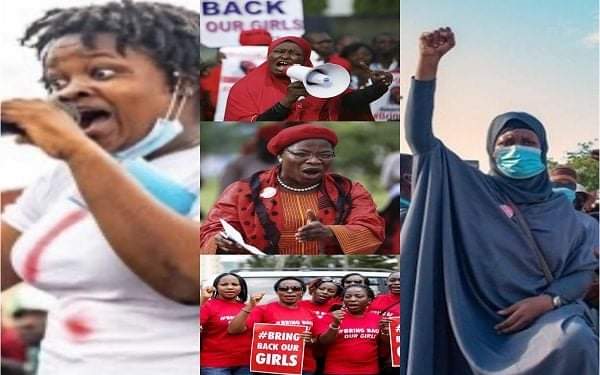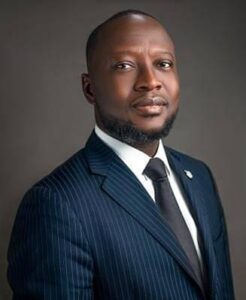
At different points in Nigeria’s rich history, women have taken so many important positions in yearning for change.
It should come as no surprise that Nigerian women are sometimes on the front lines of political change. In many ways, history has always repeated itself.
Nigerian women have a long history of mobilising for protests and demonstrations, they have been frontliners, driving change where needed.
Sometimes, Nigerian women have historically employed ‘naked protests’ to seek change.
On July 23, 2020, hundreds of women – mostly naked – staged a protest in the northwestern state of Kaduna, Nigeria. They protested at the killing of people in their community.
From the Women’s war protest of the 1910s to the Calabar Women Protest of 1924, the Aba Women’s Riot of 1929, the Abeokuta Women’s Revolt of the 1940s, the “Bring Back our Girls” movement of 2014, and the March against Rape of June 2020, #EndSARS movement, in many ways, women have determined the shape of how Nigerians protest.
In celebration of International Women’s Day 2021 themed as ‘Choose to Challenge’, here are seven moments in the history of Nigeria where Nigerian women were at the front-line.
1. Women’s war protest of the 1910s
In the 1910s, women in Agbaja stayed away from their homes for a month in protest due to suspicions among them that some men had been secretly killing pregnant women.
Their collective absence pushed village elders to take action to address their concerns.
2. Aba Women’s Riots of 1929
This was a period of unrest in colonial Nigeria.
The “riots” or the war was led by women in the provinces of Calabar and Owerri in southeastern Nigeria in November and December of 1929.
The protests broke out when thousands of Igbo women from the Bende District, Umuahia and other places in eastern Nigeria traveled to the town of Oloko to protest against the Warrant Chiefs, whom they accused of restricting the role of women in the government.
The Aba Women’s Riots of 1929, as it was named in British records, is more aptly considered a strategically executed revolt organised by women to redress social, political and economic grievances.
The protest encompassed women from six ethnic groups – Ibibio, Andoni, Orgoni, Bonny, Opobo, and Igbo.
It was reported that the war resulted in the death of 51 women.
3. Calabar women protest of 1924
3,000 women in Calabar went out to protest a market toll that was required by the government.
When the Colonial officials announced the toll, the women disregarded it and went about their usual market activities but alas they were driven away by colonial police. This however led to a massive revolt by the women
Back then, the presence of women associations and market women networks helped the protest movement.
4. Abeokuta women’s revolt of the 1940s
These women spent several years protesting the tax increase and the lack of women representation in government.
They believed that until they were granted representation in local government, they shouldn’t pay taxes differently from men.
This revolt led to the creation of Abeokuta Women’s Union (AWU) under the leadership of Fumilayo Ransome-Kuti.
This political organisaton, united market women and middle-class women and also challenged the colonial rule and patriarchal structure.
5. Bring Back Our Girls movement of 2014
After over 200 girls were abducted from the school in Borno by Boko Haram insurgents, all eyes were on the Nigerian government to act swiftly.
When the response of the government was not yielding positive results, women mobilised in Kaduna, Abuja, Lagos and across the country to protest for the rescue of these girls.
The #BringBackOurGIrls and #SaveOurGirls went viral and piqued the interest of the international community.
Women from all over the world joined the protest and over a million people signed the petition to mobilise world leaders to help rescue the girls.
6. Protest against rape and sexual violence in June 2020
In June 2020, Nigerian women took to the streets after a series of high-profile rape cases caught the interest of the people.
Following the story of 22-year-old Uwa Vera who was raped and murdered in a Church, more stories of women getting raped and killed surfaced online and this led to a protest organised by women.
Women mobilised and held a protest in Abuja and Lagos.
The hashtag #NOmeansNo trended online as more victims of rape shared their story. There was a movement to stop victim-blaming and to discourage people from enabling rape with their silence.
7. #EndSARS movement – Feminist Coalition
At the forefront of the revolutionary youth-led movement against police brutality in Nigeria is the Feminist Coalition – a group of young Nigerian feminists collectively mobilizing all facets of the global #EndSARS protests.
During the protests the non-governmental organisation raised $385,000 (£290,000) through crowdfunding and spent part of the money on legal services for those protesters who were arrested, to pay medical bills for those wounded, to provide private security at protest points and daily refreshments.
The coalition is the brainchild of Dami Odufuwa and Odun Eweniyi.
Formed in July, the #EndSars protest was the organisation’s first major project.
Although women’s safety and financial equality are at the core of the organisation’s aims, equality for all people is their vision, and so they decided to fight the injustice perpetuated by the squad by joining in the protests.
These women, named and unnamed, are the backbone of a series of resistance. By marching, volunteering, mobilizing, tweeting, speaking, donating, and flagrantly trampling on sexist, they are, without a doubt, the amplifiers of this historical Nigerian revolution.
By Alao Abiodun












